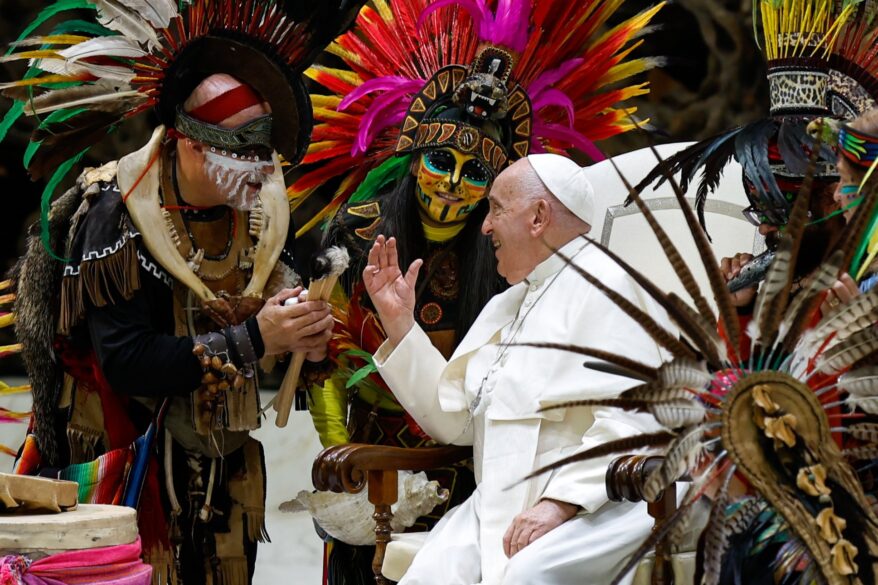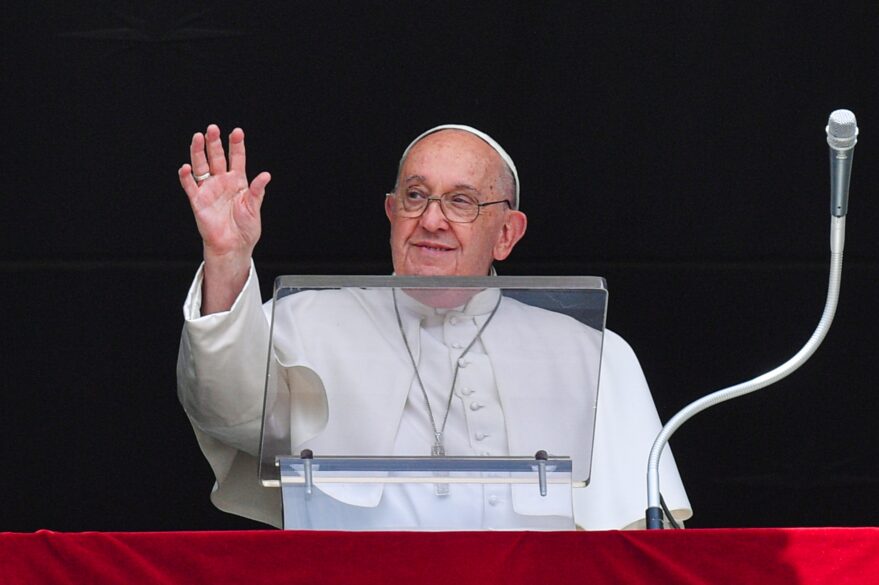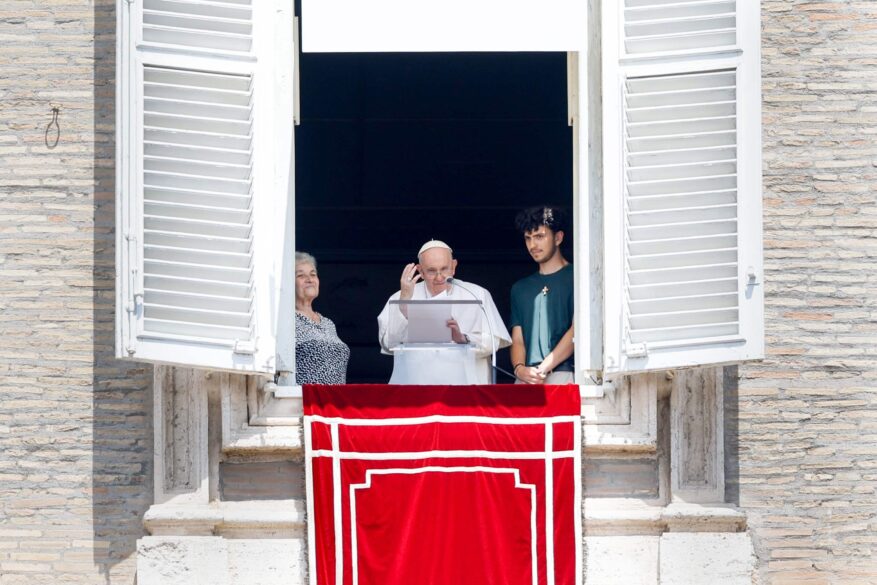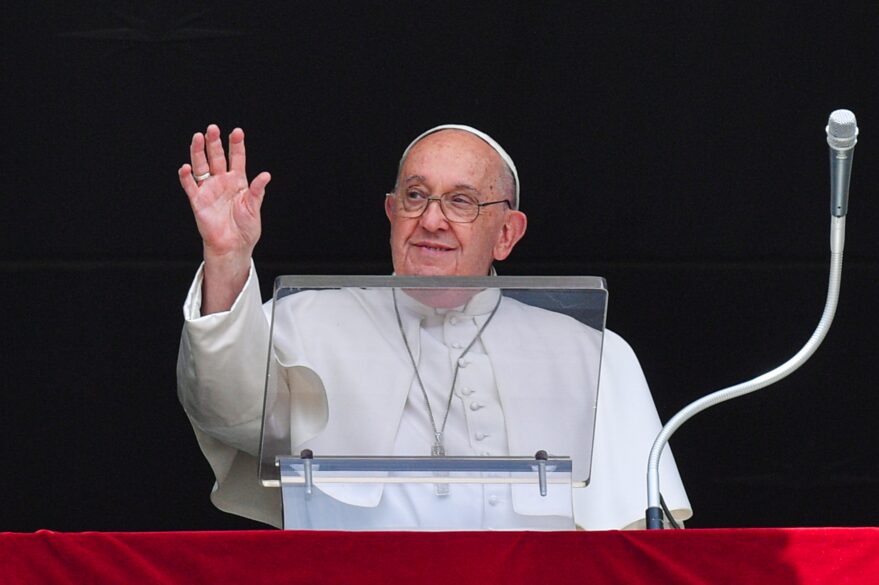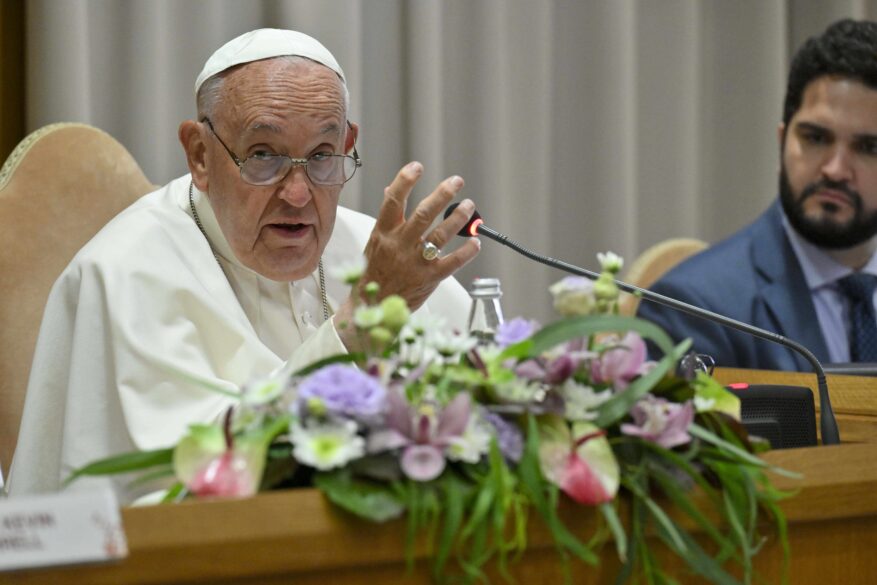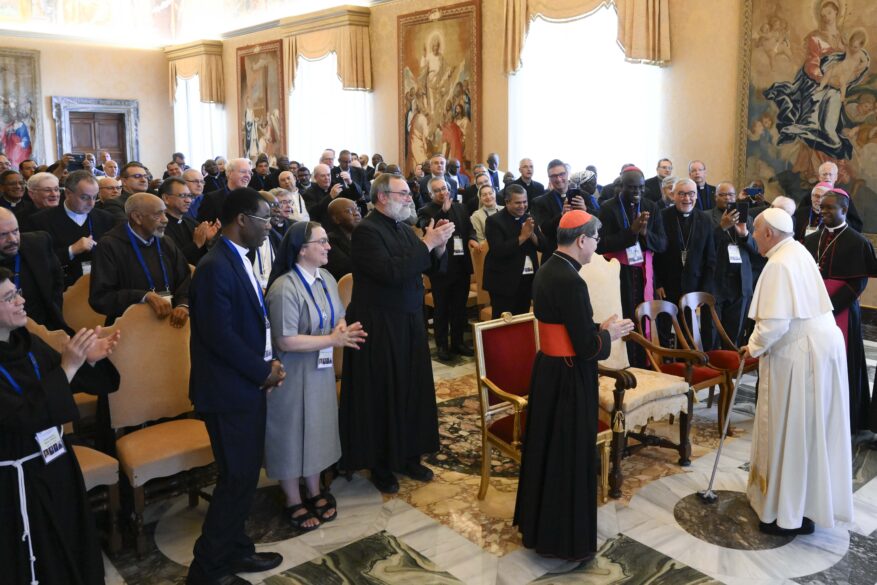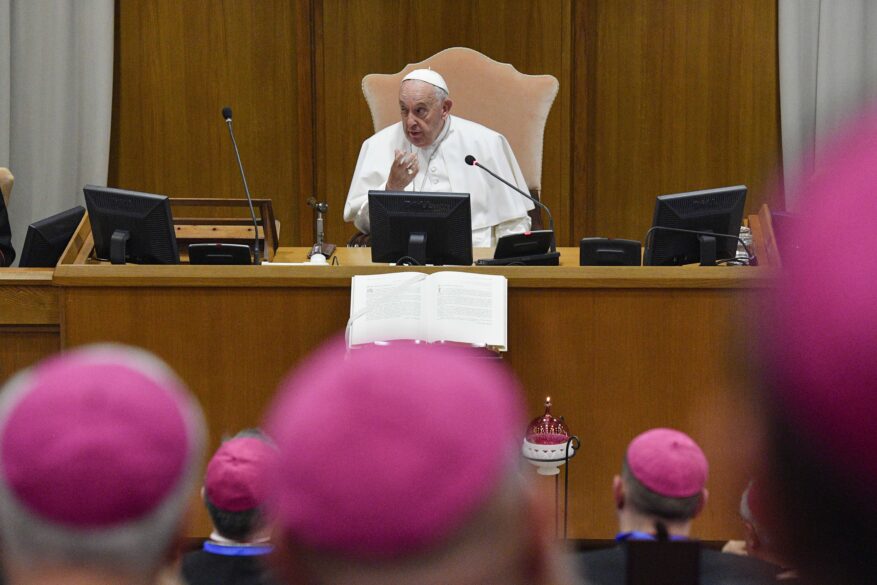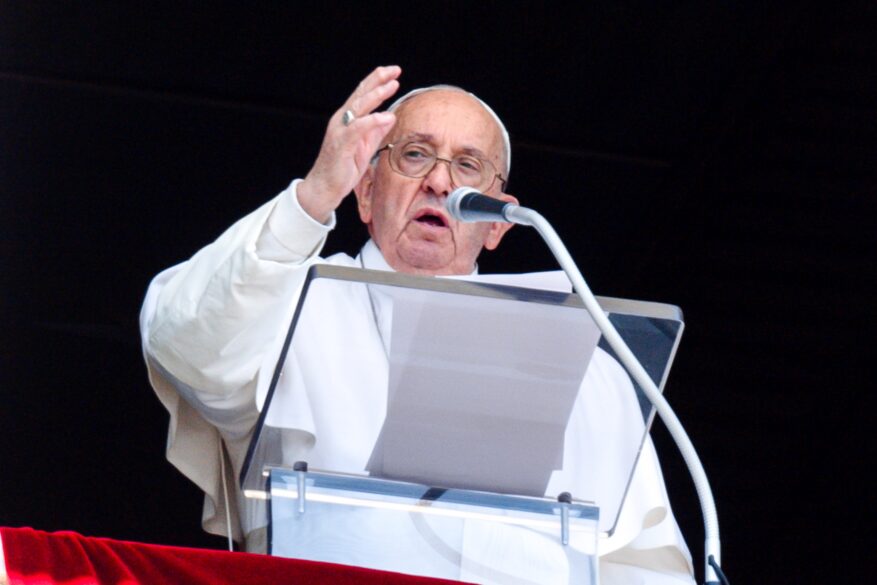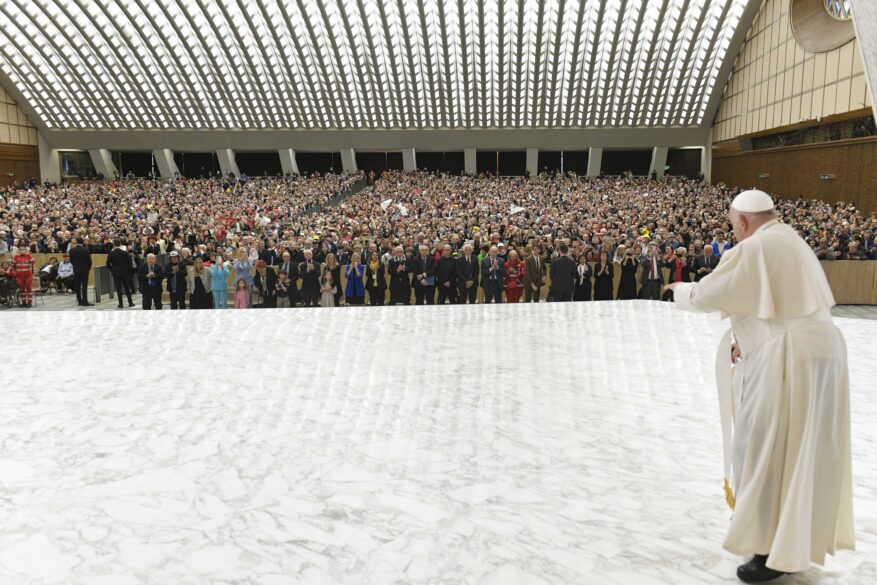By Cindy Wooden
VATICAN CITY (CNS) – Each Christian and the whole Catholic Church must hold fast to the promise that “nothing is impossible for God,” especially when facing difficulties, Pope Francis said.
Resuming his weekly general audiences Aug. 7 after a six-week summer break, the pope returned to his series of audience talks about the role of the Holy Spirit in the life of the church.
“Without the Holy Spirit, the church cannot keep moving, the church doesn’t grow, the church cannot preach,” he told pilgrims and visitors sheltered from the summer heat in the air-conditioned Paul VI Audience Hall.
Two women holding signs and shouting for the church to formally declare bullfighting a sin interrupted the reading of a passage from the Bible at the beginning of the audience. Security escorted them out of the audience hall.
Looking at how the Holy Spirit enlivens and assists the church, Pope Francis said people often wonder, “How is it possible to proclaim Jesus Christ and his salvation to a world that seems to seek only well-being in this world?”
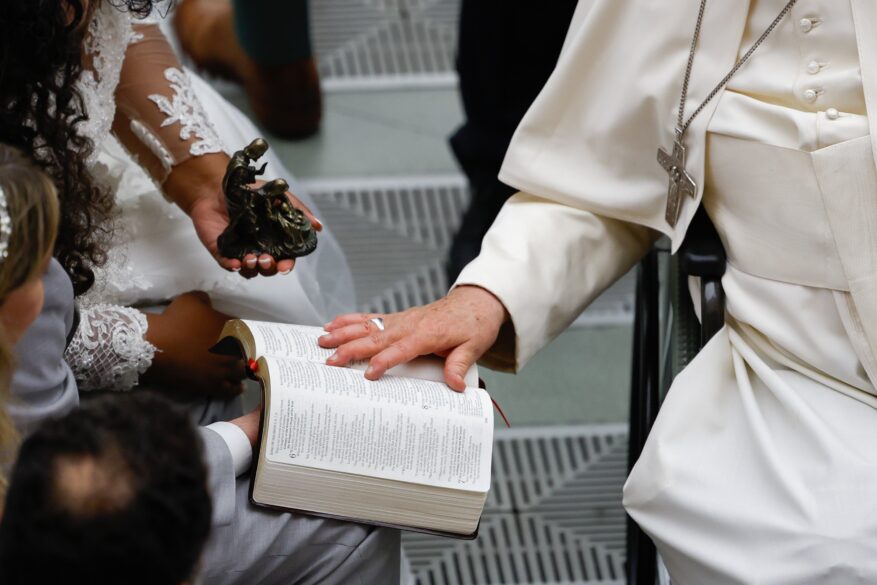
The answer, he said, is given in the Acts of the Apostles: “You will receive power when the Holy Spirit comes upon you, and you will be my witnesses.”
Notice, the pope said, the words are almost the same as those the Angel Gabriel said to Mary when she asked how it would be possible that she would conceive and bear God’s son.
“What is said about the church in general also applies to us, to every baptized person,” Pope Francis told the crowd. “In life, all of us sometimes find ourselves in situations beyond our strength, and we ask ourselves: ‘How can I cope with this situation?’ It helps, in such cases, to repeat to ourselves what the angel said to the Virgin: ‘With God nothing will be impossible.’”
The pope prayed that everyone would find the strength to keep going “with this comforting certainty in our hearts: ‘With God nothing will be impossible.’”
“If we believe this, we will perform miracles,” he said. “With God nothing will be impossible.”

